Post WWII 1949 Dated U.S. European Occupation of Germany "DUSSELDORF" ARMY/AIR Map


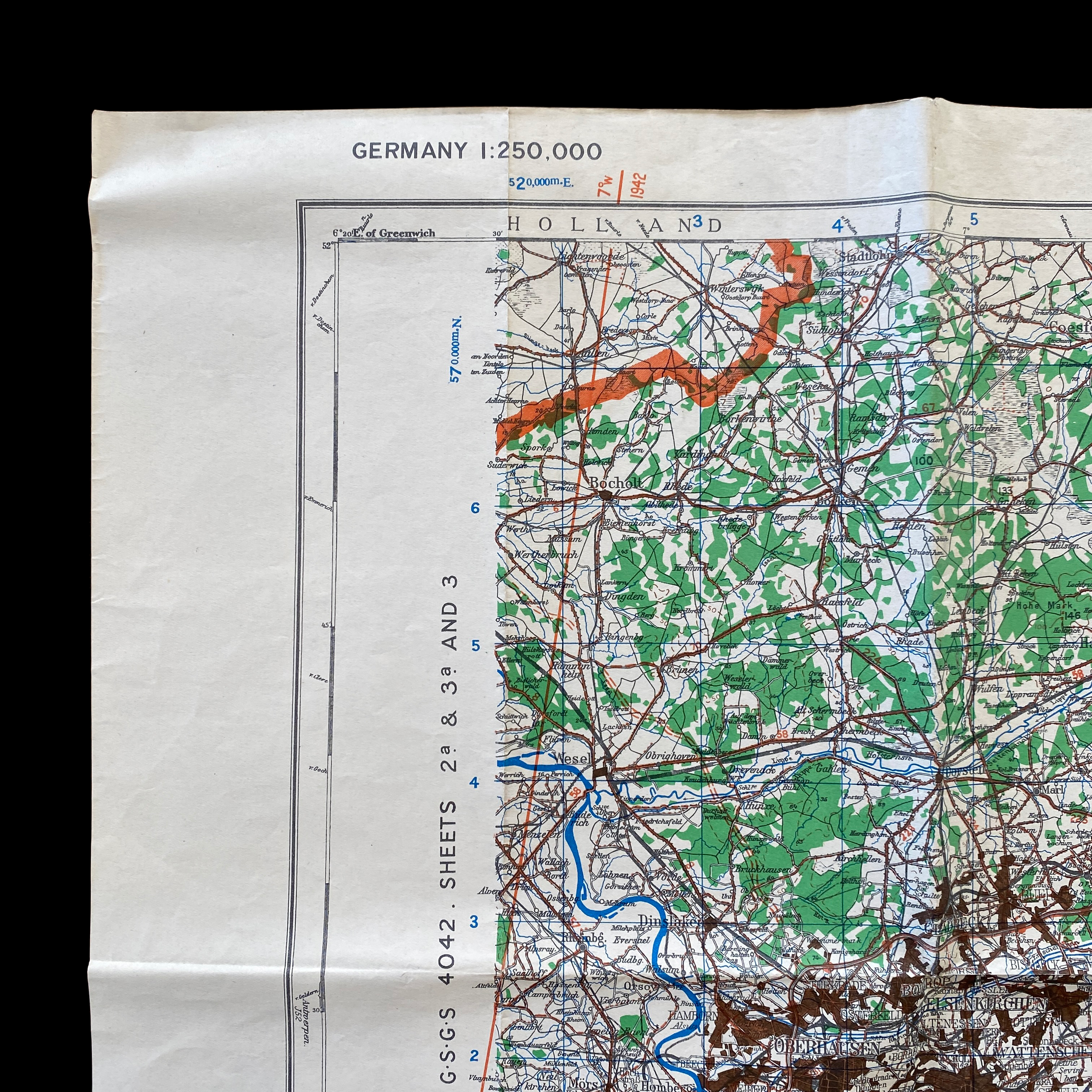
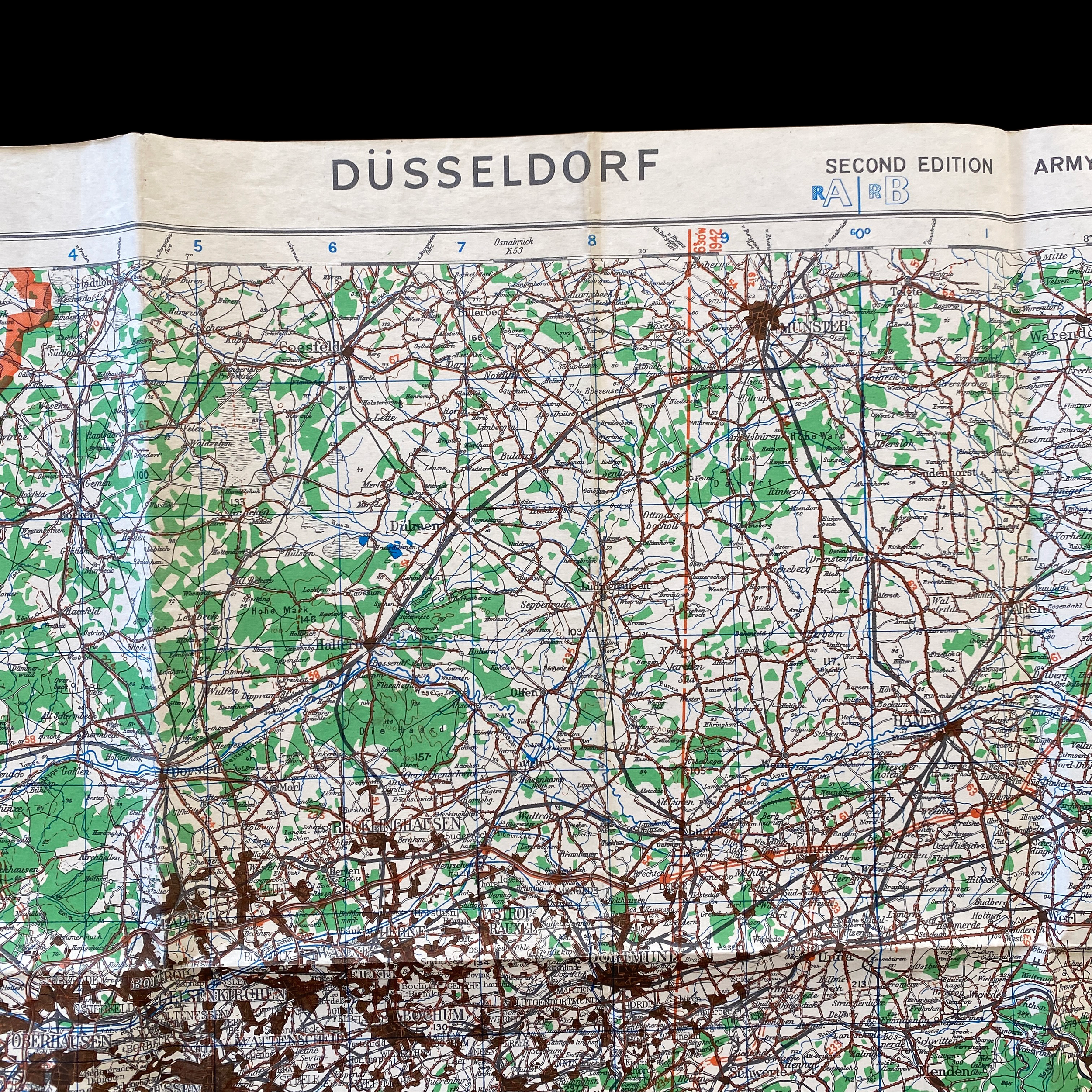
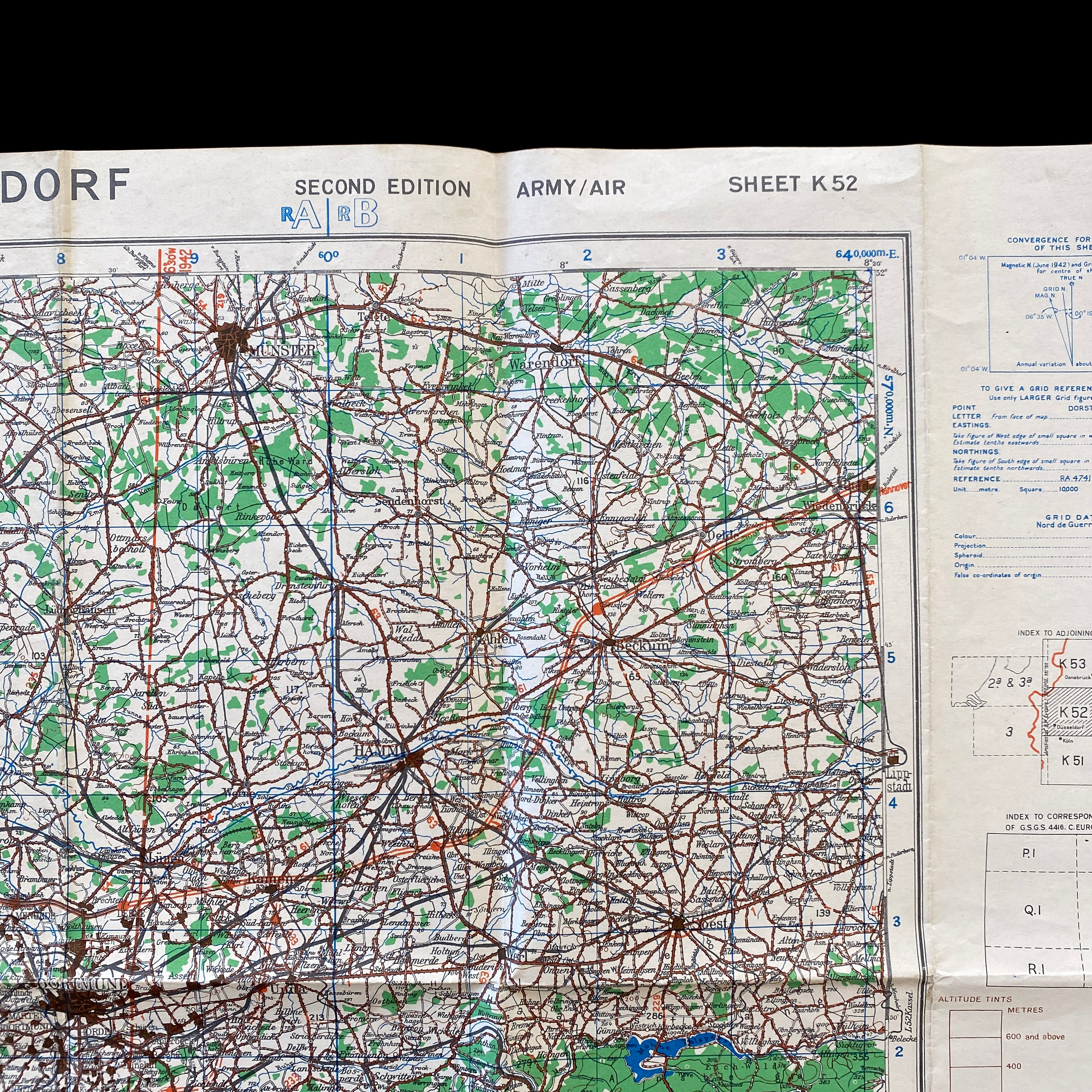
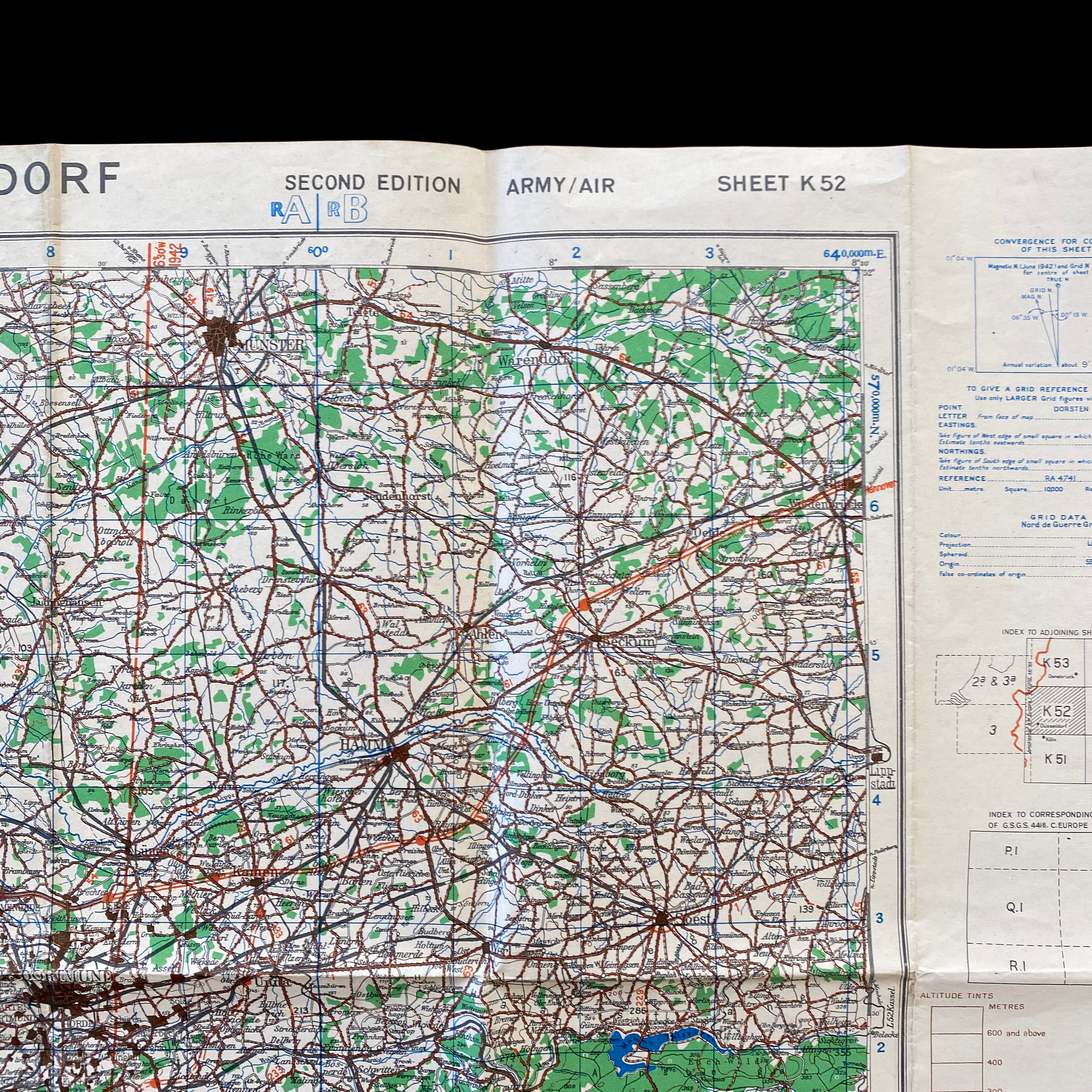
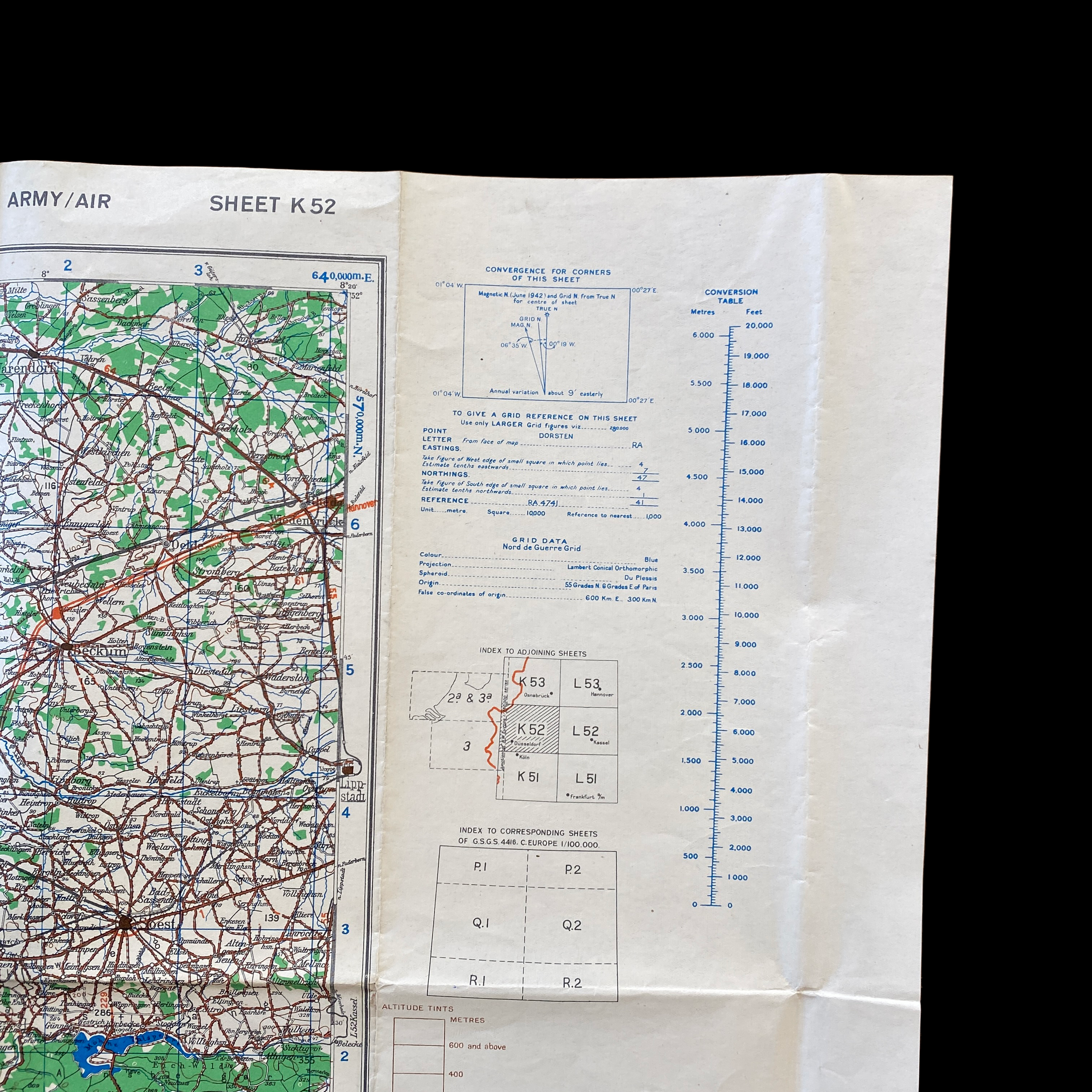
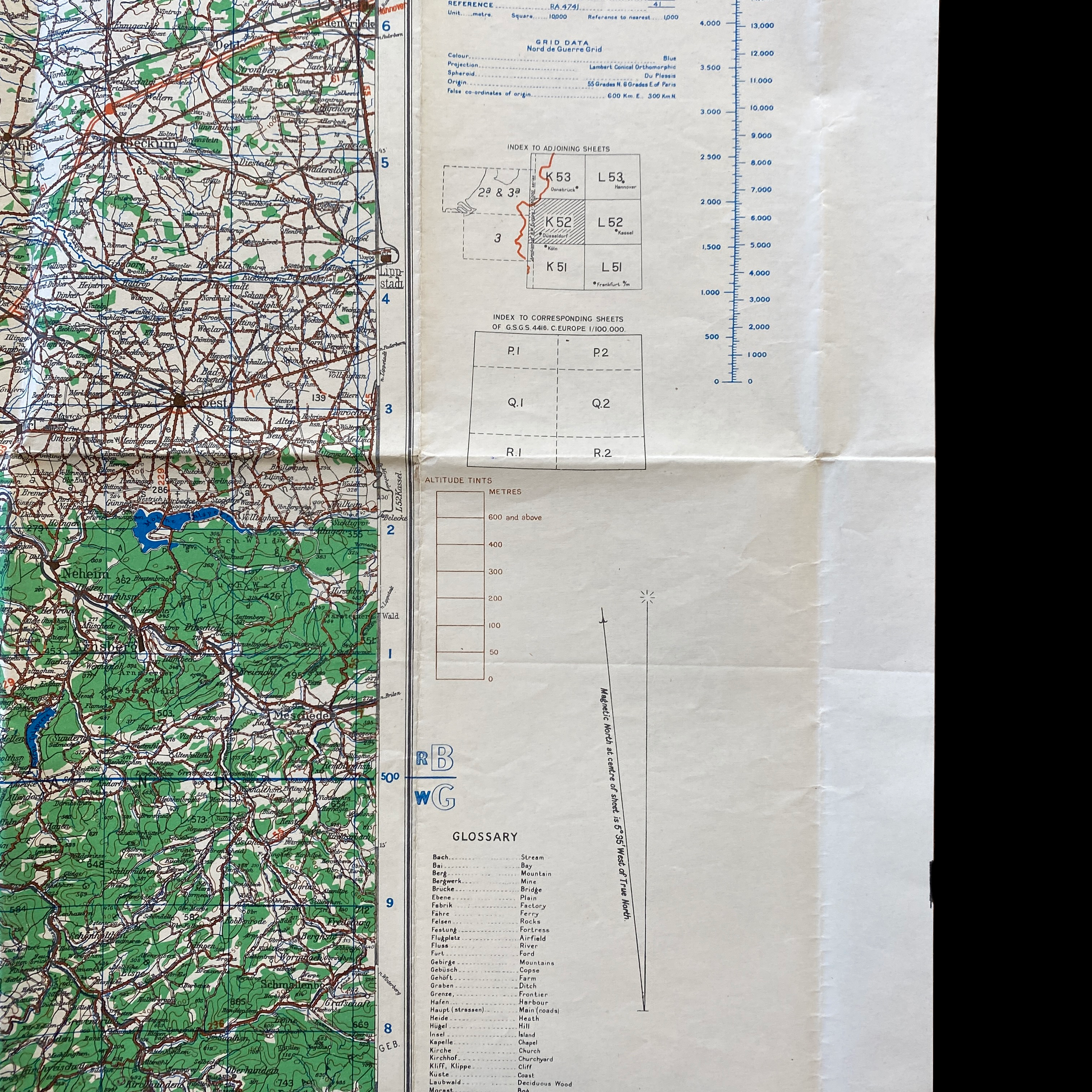
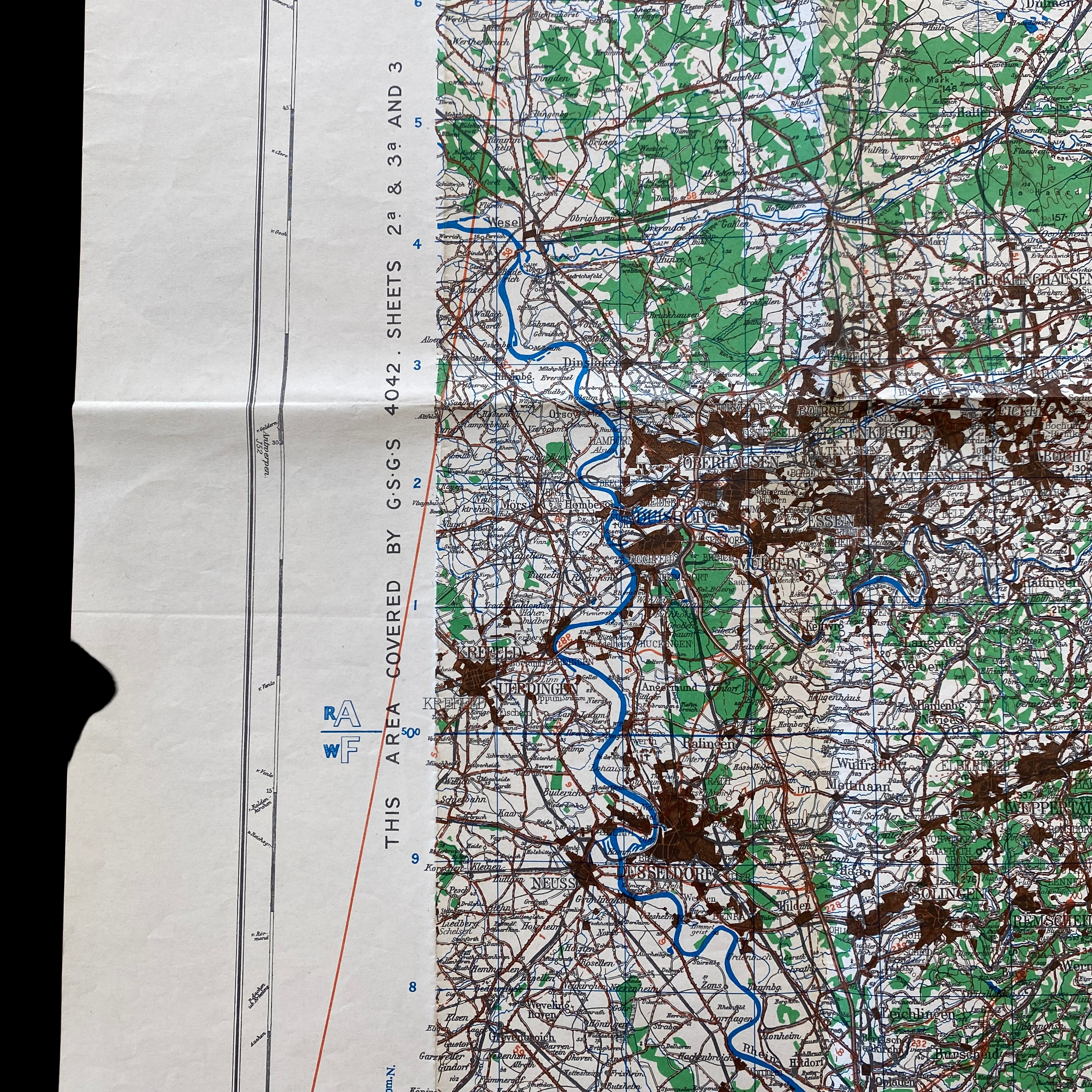

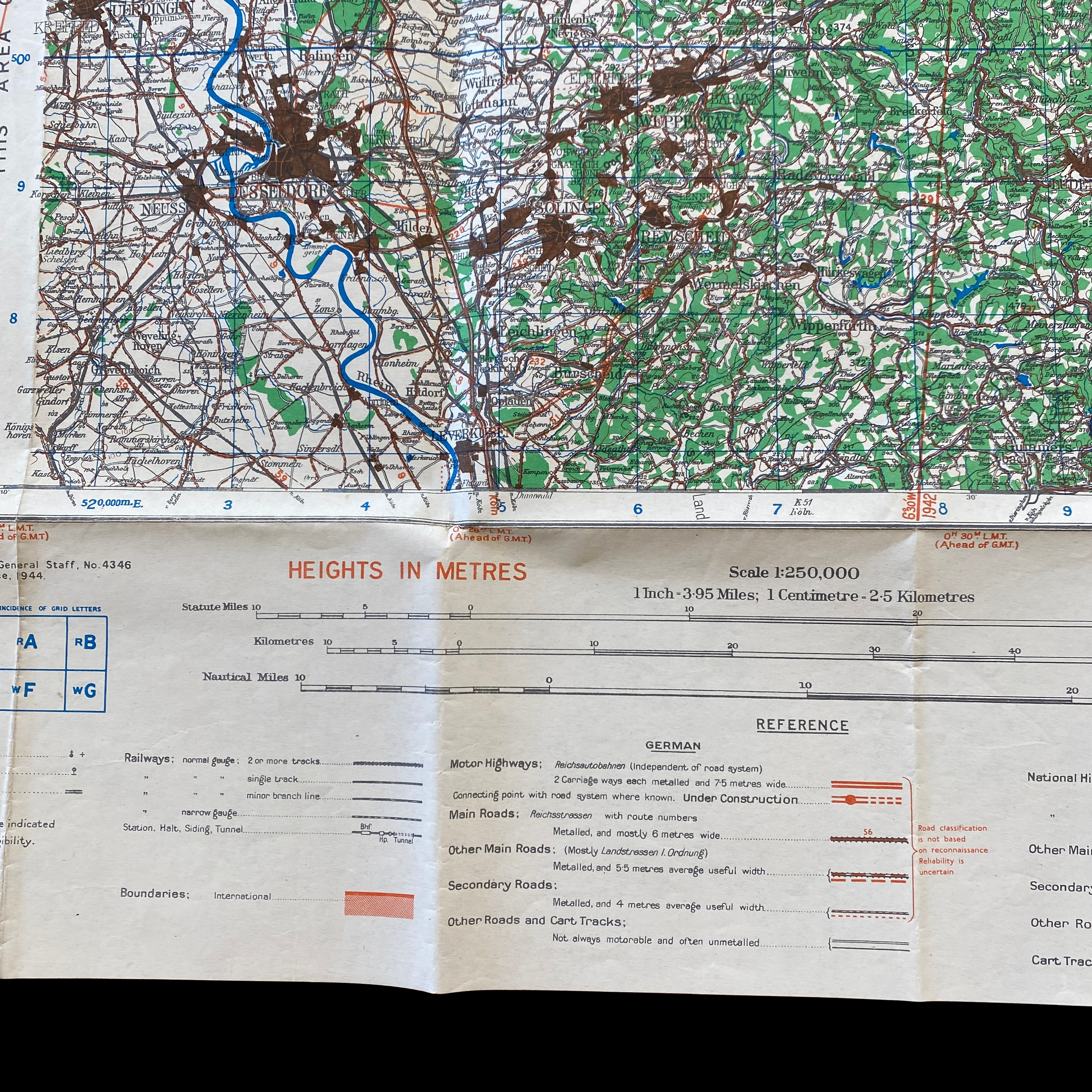
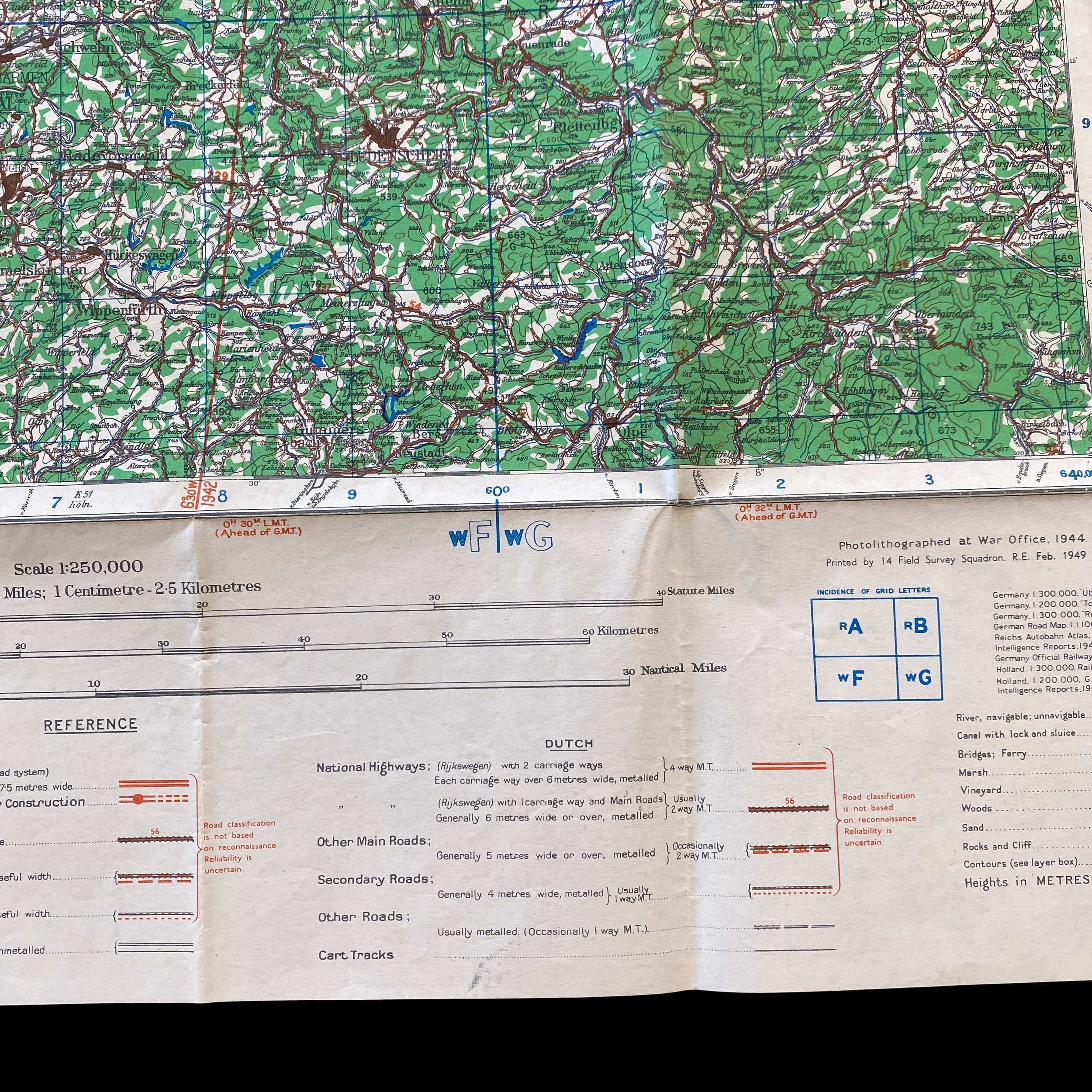
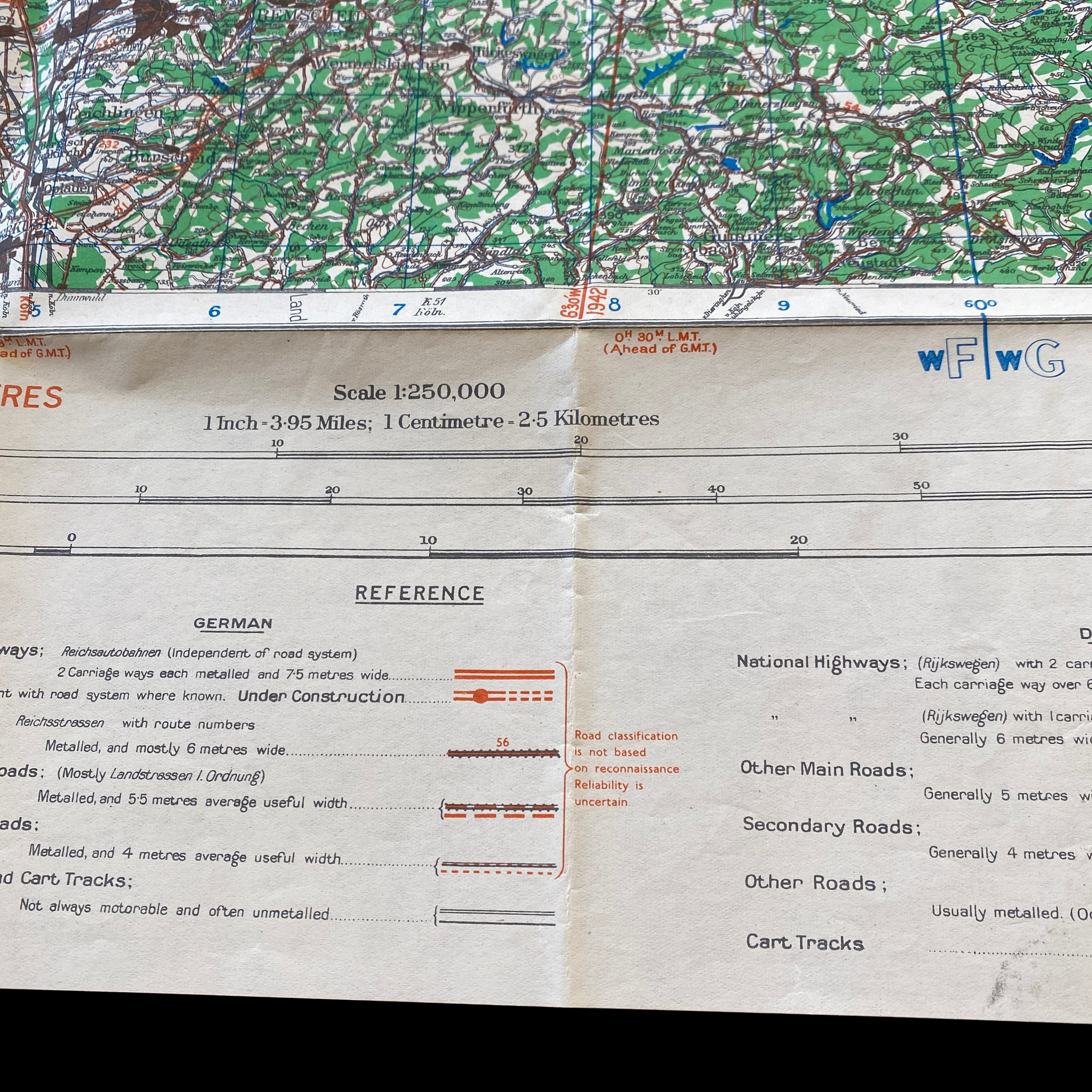
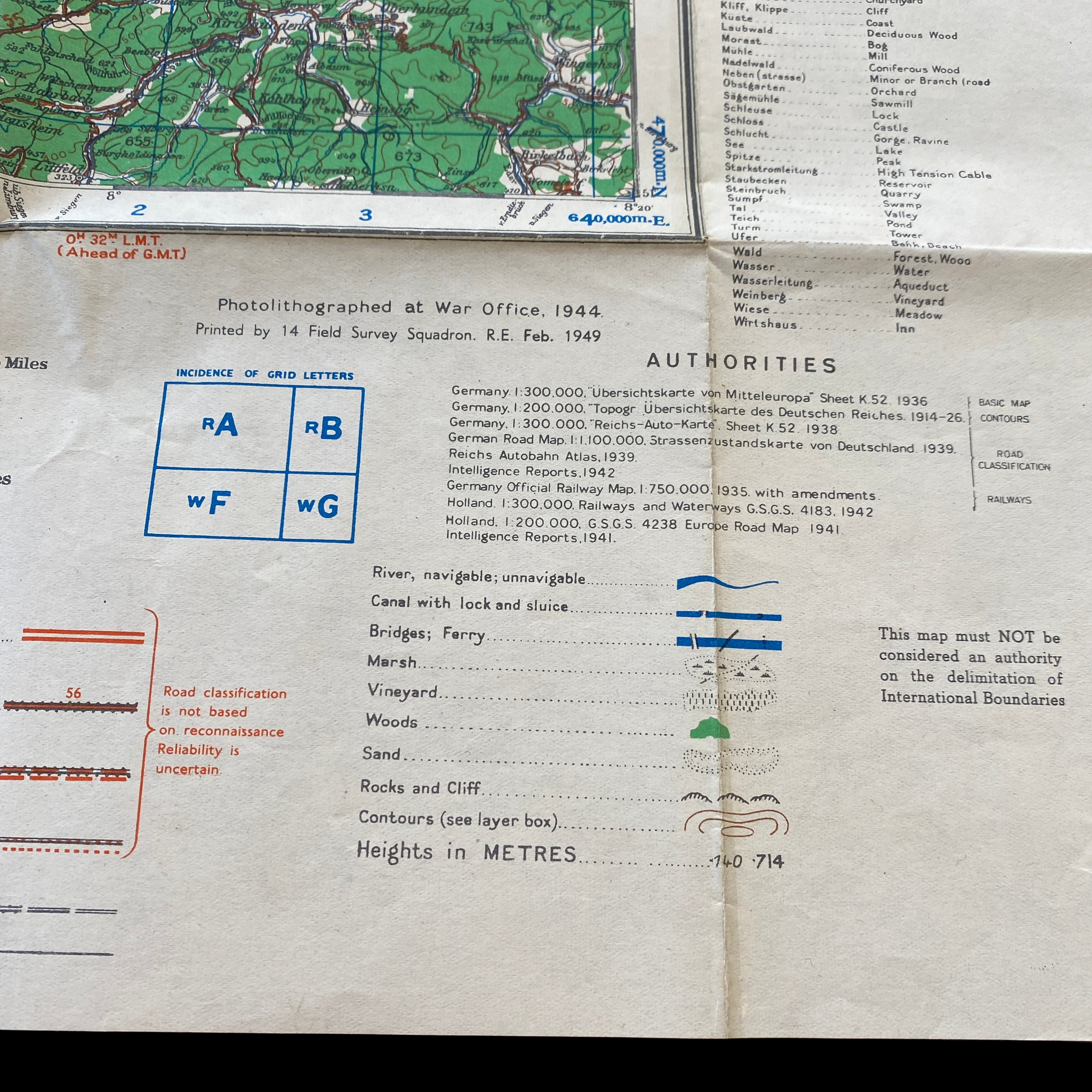
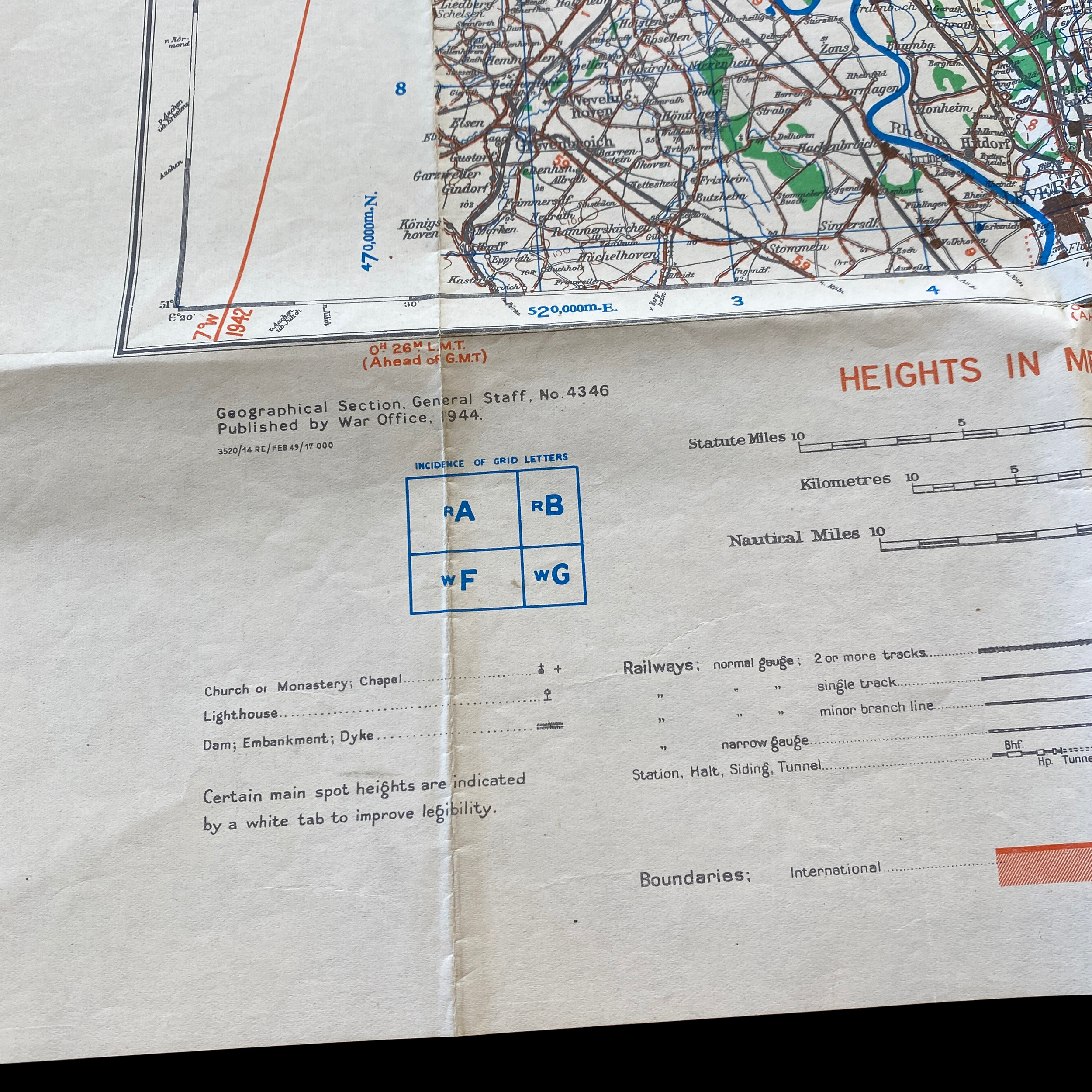
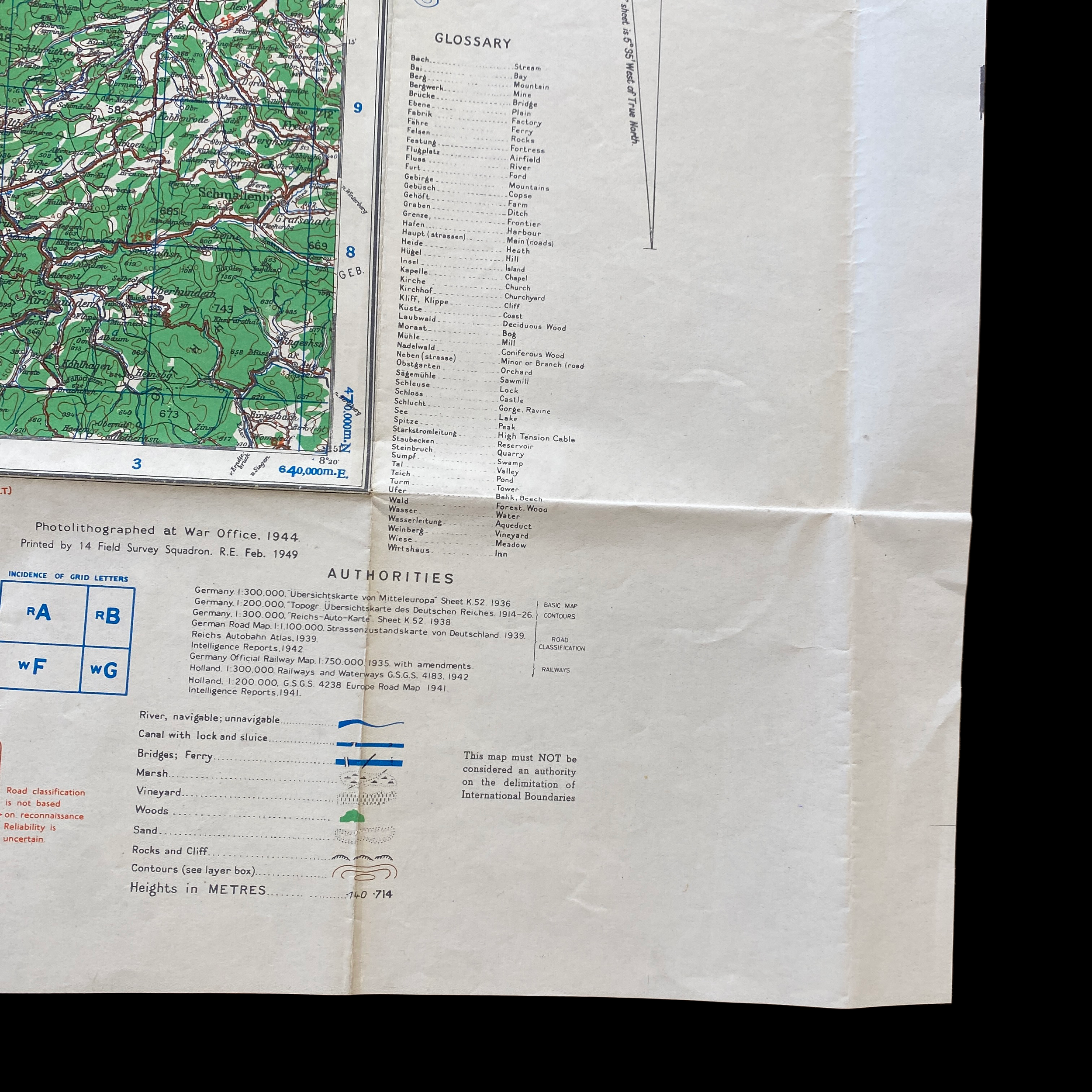

Post WWII 1949 Dated U.S. European Occupation of Germany "DUSSELDORF" ARMY/AIR Map
Comes with C.O.A.
This original U.S. military map titled “DUSSELDORF” is a second edition ARMY/AIR map printed in 1949. The presence of U.S. military in Dusseldorf in 1949 played a significant role in the rebuilding and stabilization of post-World War II Germany. The U.S. army was part of the Allied occupation forces and helped maintain peace and order in the region, while also supporting the establishment of the Federal Republic of Germany. The U.S. military in Dusseldorf had various responsibilities, including the disarmament of former enemy forces and the maintenance of law and order. In addition, they provided essential support to the local population by providing food, shelter, and medical aid. They also helped with the reconstruction of the city and its infrastructure, including the rebuilding of homes and public buildings.
Furthermore, the U.S. military in Dusseldorf was instrumental in the creation of a new democratic government in Germany. They worked closely with German political leaders and military officials to establish a democratic system of government and a free market economy. This helped lay the foundation for a prosperous and stable future for Germany. The U.S. military also played a role in the Cold War, serving as a deterrent against the expansion of Soviet influence in Europe. They were equipped with advanced weaponry and stationed in key locations throughout Germany, ready to respond in the event of a Soviet attack. This helped to maintain peace and stability in the region, and ensured that the country did not fall under Soviet control.
In conclusion, the presence of U.S. military in Dusseldorf in 1949 was crucial in the rebuilding and stabilization of post-World War II Germany. They played a major role in the creation of a democratic government, helped with the reconstruction of the city and its infrastructure, and served as a deterrent against Soviet expansion during the Cold War. Their contributions helped lay the foundation for a prosperous and stable future for Germany.
The post-World War II occupation of Germany by the United States was a significant period in modern history. The US was one of the primary Allied powers that defeated Germany in the war and took charge of the reconstruction and democratization of the country. The primary goals of the US in occupying Germany were to prevent a resurgence of Nazi power and to rebuild the country as a democratic, economically self-sufficient nation. To achieve these goals, the US implemented several key policies, including the removal of Nazi leaders from power, the de-Nazification of German society, and the introduction of a market-based economy. The US also played a crucial role in the creation of a new, democratic government in Germany. This included the formation of a constitutional assembly, the drafting of a new constitution, and the establishment of a federal republic. The US worked closely with the German government to ensure that it was democratic and representative of the German people.
Despite these efforts, the US faced several challenges in the post-war occupation of Germany. One of the most significant of these was the presence of a significant Soviet military presence in Eastern Germany. This presence threatened the stability of the German government and made it difficult for the US to achieve its goals. Additionally, the US faced significant resistance from the German people, who were tired of war and eager to rebuild their lives. This resistance took the form of protests and demonstrations, as well as a growing sense of disillusionment with the US-led occupation. Despite these challenges, the US was ultimately successful in its post-war occupation of Germany. Over time, the country became a thriving, democratic nation that was at the forefront of European integration and the creation of the European Union. Today, Germany is a key ally of the US and a major player on the world stage.
In conclusion, the post-World War II US occupation of Germany was a complex and challenging period in modern history. Despite the difficulties faced by the US, the country ultimately achieved its goals of preventing a resurgence of Nazi power and establishing a democratic government in Germany.